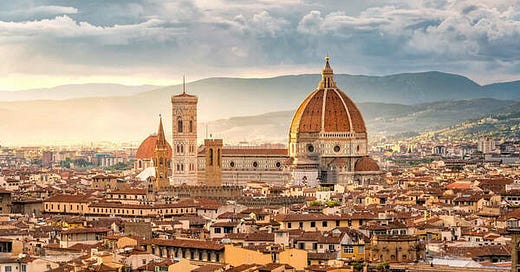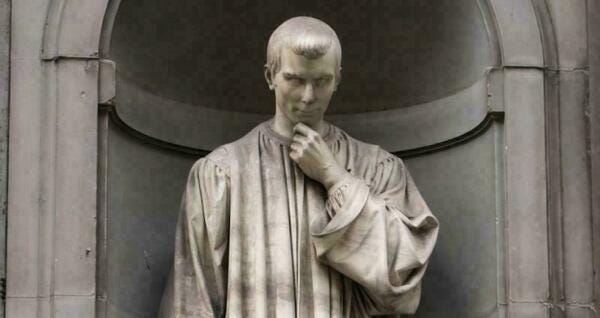History #9: The History of Florence
The Apr-Jun 2025 History subscription book will be HISTORY OF FLORENCE AND OF THE AFFAIRS OF ITALY
HISTORY OF FLORENCE AND OF THE AFFAIRS OF ITALY: FROM THE EARLIEST TIMES TO THE DEATH OF LORENZO THE MAGNIFICENT was written by Niccolo Machiavelli from 1521 through 1525 and was commissioned by no less Florentine a figure than Giulio de Medici. An essay about Machiavelli and his love for his native city is arguably the best argument for reading what is more casually known as his Florentine Histories.
The tradition of political realism has a reputation for being pessimistic—that is, for seeing and expecting the worst from the world, its individuals, and its states. Yet, despite all his realism, Niccolò Machiavelli was a romantic about his city. He famously said in a letter to his friend, diplomat Francesco Vettori, “I love my city more than my own soul.”
In 1512, the Medici retook Florence from Piero Soderini, and removed Machiavelli from his diplomatic position. The following year, they accused him of conspiring against them and tortured him for three weeks. After this, Machiavelli retired to his family home in Sant’Andrea, and never ceased to lament his “great and continued malignity of fortune” of not being able to contribute to his city’s administration.
Exiled from praxis, Machiavelli theorised about politics. He wrote two historical works—Discourses on Livy and Florentine Histories—to speak to the ways in which he thought that the Italy of his day should aspire to the glory of ancient Rome and the ways in which it failed to do so. He never rejected his being a modern man, and he did not believe that Renaissance Italy could imitate ancient Rome in all respects. However, he pushed his fellow citizens to take inspiration from it and to consider carefully that they share something with their past: it’s not “as if heaven, sun, elements, and men had varied in motion, order, and power from what they were in antiquity.”
One cannot, then, study Machiavelli’s Florence without studying his idea of Rome: its founding, in what ways the existence of the Roman empire shaped how we understand politics, and the institutions that seek to temper the constant flux that characterizes it. Machiavelli clearly deemed Florence to have failed to live up to its potential despite having (as Rome did) productively conflictual “humours” present within it. He believed that the Romans channeled the tumult of the ambitions and the desires of those who wish to command and those who do not wish to be commanded towards a mixed constitution that allowed Rome to flourish. Contrastingly, he disdained the Florentine elite for being self-absorbed and petty in his description of the foundation of Florence and its Guelph and Ghibelline factions, and he chastised the licentiousness of the impatient and fickle Florentine public during the Ciompi Revolt. Machiavelli depicted a fall from an idealised Roman grace. He did so even though he knew that people would much prefer aggrandizement and forceful rhetoric; he remained a realist despite it all.
Good realists acknowledge and affirm their reality and attempt to better it even when the odds are not in their favor, even when they themselves are not optimistic. There is a peculiar type of optimism and heroism to their project. Machiavelli was such a man, whose city continued to inspire him through the ups and downs of his life—it was the thing that he loved, lived, and died for.
Although this will be a Castalia History book, we will be producing it to fit perfectly on the shelf next to Machiavelli’s Discourses on Livy, which has been one of our most popular Library books.









Discourses on Livy help me understand just how relatively stupid I am compared to some of the figures with the best. Was a fascinating read, with nearly every chapter leaving me in thought.